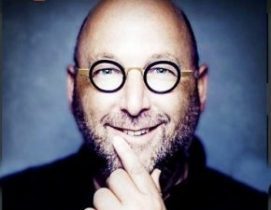Voices
Do we have different standards for ‘others’?

On 24 February, an article appeared in The Times of Israel claiming that 11 ultra-Orthodox Jews (Haredim) had tested positive for COVID-19 on landing in Israel.
More concerning was the fact that a passenger on board had claimed to have overheard some of the young men “boasting” that they had not taken a COVID-19 test but had simply managed to get a negative result. The passenger reported this to the authorities, who are investigating the claim.
After recounting the story on my morning show, I was challenged by a friend who questioned why I had chosen to use the identity of the group. Would I have used a group description to describe the passengers if they were modern Orthodox, Reform, or simply irreligious Jews? Would I have dared, he asked, to use the term Muslim (if they were) or any other description that he knew I wouldn’t use if it wasn’t relevant to the story.
He’s right of course. The identity isn’t at all important in this case.
Earlier in the week, I had also spoken about two incidents of antisemitism on NBC television in the United States. Listeners agreed that the episode of Saturday Night Live where the host suggested that Israel was providing a vaccine only to Jews was antisemitic. They also agreed that a scene from a show called Nurses, where it was implied that Jews wouldn’t accept a transplant from an Arab or a woman was also problematic. But that scene showcased Haredim, and some listeners felt that “they” had brought this type of thing on themselves as a result of their behaviour.
To me, it was no different to suggesting that a rape victim was “asking for it” or was to blame, but so entrenched was the thinking, I was unable to get my point across.
It was clearly acceptable to entertain bias against the ultra-Orthodox.
I’m concerned that my own reference in the case of the travellers, as well as my listeners’ reaction to the episode of Nurses reflect an internalised bias. One that cannot be ignored.
I believe very strongly that observant Jews should themselves demand to be held to a higher standard. And while there is no doubt that there has been problematic and outright reprehensible behaviour in some communities within the ultra-Orthodox fold, I’m deeply troubled that we are moving fast towards a hatred of “others” within our own community. And that we don’t even realise it.
We need to check our own behaviour.
Are we as outraged by the shenanigans at the Rage Festival that triggered the new variant and the second wave as we are by a shul that stayed open when it should have closed?
Are we as infuriated by secular Jews flying home from holiday with COVID-19 as we are by a wedding that shouldn’t have taken place? Are we quick to shake our heads when Haredim attend funerals in Jerusalem but justify gatherings in Tel Aviv because the right to protest is sacrosanct?
It begins with a recognition that there is bias. It begins with the acceptance that we are quicker to condemn an identifiable group. And it begins with treating our own with the respect that we would undoubtedly give to others.
It begins with me.
